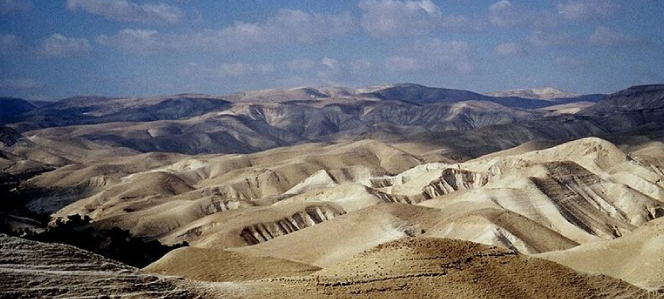I wonder if anyone but me remembers this little book Why Am I Afraid to Tell You Who I Am? by John Powell, SJ? I remember a friend sharing her copy with me in the late 1970s, but I think we were both too young to really benefit from it. I may pick it up again, because I’m tired of being bashful, and I’m tired of feeling hesitant around people simply because in my life I have been bullied.
I want to say, “Toss that, so what?” and just move on already. I want to be done with all the old tapes and learned behaviors. I want to get beyond memory and bad messages. I’m sick of shielding.
It is hard to say what is feeding such a sudden desire. Up to now I have been a pretty contented lone wolf, going my own way—more pleased to observe than to join, happier to be alone in my desert cave than to be surrounded by the pack or the howling voices. It feels natural to me.
In fact, what I am sensing within myself is less a real longing to run with the pack than simply to remain myself, but less isolated—more willing to look outside and see if another lone wolf is struggling or if some cubs need direction.
I can’t escape the sense that this instinct is arising in reaction to the chaos and crisis that currently exists in our Church.
My first response to the stories about former Cardinal Theodore McCarrick, and then to the Grand Jury report out of Pennsylvania, had been to go more deeply inward with prayer, fasting, and acts of repentance for the sake of the Whole and Mystical Body of Christ, the Church. This we must all do if we desire her healing.
Recently on Twitter a friend questioned why layfolk should be charged to take up any bit of the work of penance when the great sins that have roiled us originated with priests and bishops. I could only answer that the white blood cells cannot refuse to do their job against an infected heart and still expect the Body to heal. Or, as St. Paul put it in 1 Corinthians, “The eye cannot say to the hand, ‘I do not need you,’ nor again the head to the feet, ‘I do not need you.’ Indeed, the parts of the body that seem to be weaker are all the more necessary.”
The whole Body of Christ needs to work for its restoration just as one’s whole body must be engaged with any therapeutic action. Perhaps that is why the interior work I have been doing, so familiar, has given rise to this other, newer, feeling of wanting to reach outward, to face my co-religionists—at Mass and in Church basements and on the street—and say, “Let’s courageously suffer a little bit, together, for her sake. Let us be willing to confront in charity, to seek reparation in good faith, to (as Paul writes, this time to the Colossians) ‘instruct and admonish one another in wisdom made perfect.’”
At the moment, I am trying this at home, in small ways, because if we are to become the Church we want to see, we must begin in the home, with our families and the domestic church. What we habituate there we can then bring outside—to church, to the store, to the PTA meeting—and let it all ripple outward as God’s will and his grace allow.
Part of me is even feeling like it might be time to volunteer with a local hospital’s pastoral care team again as I used to do, before my cave become too comfortable and I was certain others could take my place. Increasingly, I see how important every one of us is, to every portion of this needful and wounded Body. Not a single one of us, not a single cell, is expendable.
I was raised in the desert of the American Southwest, and in ten years I never found any beauty there, except in the fleeting glimpses of wild horses, running in the distance.
I wanted to run too.
Then, on a visit to Israel, I discovered a different sort of desert, one that, in places, seemed even more desolate than the dry lands of my youth, and yet was also inexplicably beautiful. In rocks, in caves, in arid, lifeless ground, the desert in Israel was golden, everywhere. Driving through it, it was easy to think, “This? This is what people are fighting over?” Why here?
But then I realized, only in a place this empty, this rugged and unbearably hot, this dauntingly vast—only in this place of naked challenge and near-certain defeat could a hoped-for promise of redemption take hold and thrive. God chose his worksite well.
As a Church we are in a kind of desert right now, and why wouldn’t we expect to be? Why should the life of the Church be different than what we know?
Life lashes at us. No one escapes it without experiencing at least one episode of excruciating pain and loss: loss of a loved one, certainly, but also loss of one’s own dignity, of a sense of safety or security, a loss of hope; a loss of one’s sense of place or worth; a loss of belief in the goodness of others; a loss of belief, full stop.
These losses, particularly if they come early and often, pull you into the desert while you are still dewy with youth, and if you’re lucky, you wander for a very long time, but you survive.
And if you’re looking for them, eventually, the blessings become apparent; the promised land appears on the horizon, and you finally know that if you only keep moving, it will become enlarged in your sight, and everything will make sense—that restoration will come, along with healing.
And then, there will be glory.
